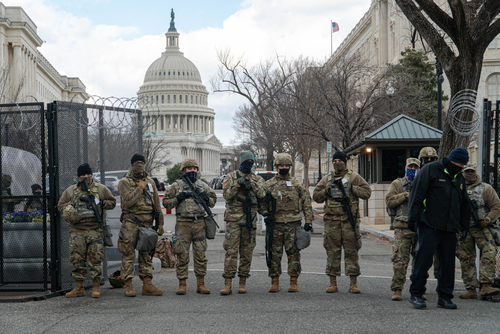Trump Considers National Guard Deployment in D.C.A violent attack on a pro-Trump staffer may trigger unprecedented federal intervention in Washington, D.C.
Trump’s Federal Intervention Threat
President Donald Trump has announced the possibility of federalizing Washington, D.C., by deploying the National Guard in response to a violent attack on Edward Coristine, a 19-year-old pro-Trump staffer. The assault, which occurred during an attempted carjacking near Dupont Circle, has been labeled by Trump as indicative of rampant crime in the nation’s capital. This move could lead to an unprecedented override of local law enforcement and the potential repeal of the DC Home Rule Act, which grants limited self-governance to the district.
The President’s consideration of such drastic measures underscores his administration’s firm stance on law and order. Although crime rates in D.C. have reportedly fallen by over 25% compared to previous years, carjackings and youth involvement in violent crimes remain significant issues, as highlighted by the recent attack.
Local and Federal Dynamics
The potential federal intervention raises complex questions about D.C.’s autonomy. The city’s unique status as a federal district means that while it operates under the DC Home Rule Act, ultimate authority lies with Congress. Local leaders, including D.C. Mayor Muriel Bowser, have yet to publicly comment on Trump’s threat but have historically resisted federal overreach, favoring local governance as a means to address crime. Meanwhile, Trump allies argue that federal action is necessary to restore order and public safety.
Congressional Republicans are already advancing legislation to repeal D.C.’s home rule, suggesting that Trump’s threat might not only be rhetoric but a prelude to significant policy shifts. If implemented, this could erode local governance and set a precedent for future federal takeovers in other cities considered unsafe or mismanaged.
Implications and Reactions
The announcement has sparked a flurry of reactions from various stakeholders. Jeanine Pirro, the newly appointed U.S. Attorney for D.C., has emphasized a strong prosecutorial stance on violent crimes, while Attorney General Brian Schwalb has assured that juvenile offenders involved in the assault will face due process. The situation remains fluid, with investigations ongoing and political maneuvers intensifying. The broader implications of such federal intervention could be far-reaching, affecting D.C.’s governance, public safety strategies, and the national conversation on urban crime and autonomy.
As the debate continues, D.C. residents and officials must navigate the tensions between local control and federal authority, with potential impacts on civil liberties, public safety, and political dynamics in the capital and beyond.
Sources:
Fox News reporting on Trump’s statements and the assault
Official White House and Department of Defense documentation
“`


DC is a Leftist city which always scores in the top ten of dangerous cities in the US. Normally, I would say F ’em but DC is the center of the Federal government. Oh, wait. ‘Center of the Federal government’? Let the F’in place burn to the ground.